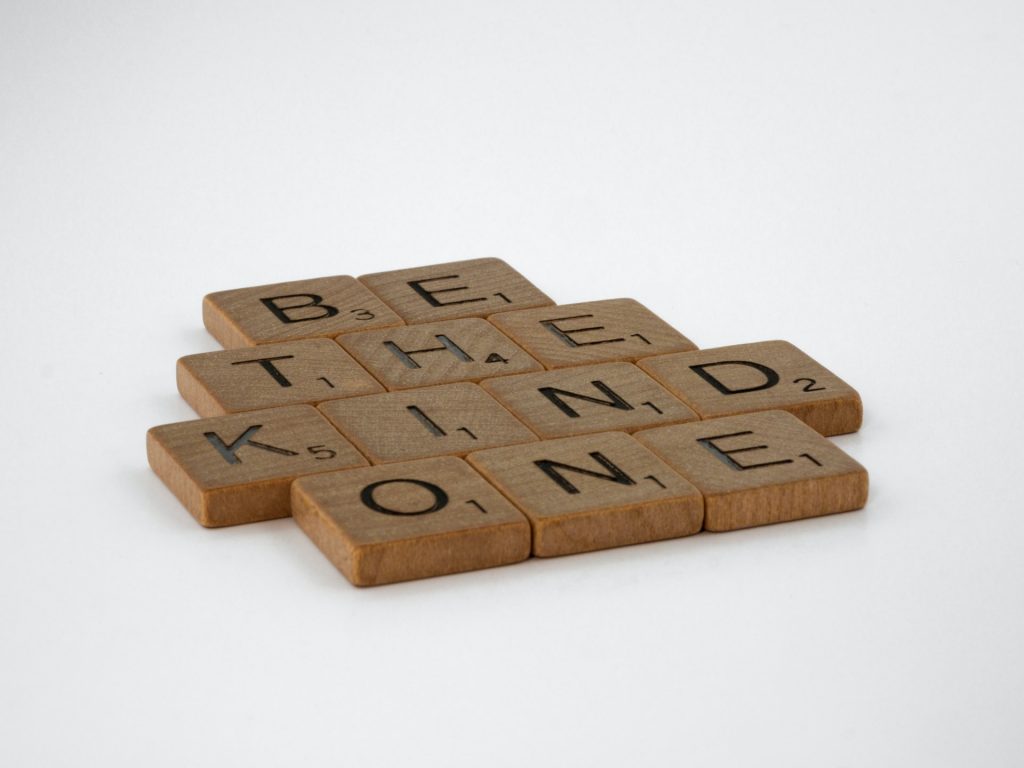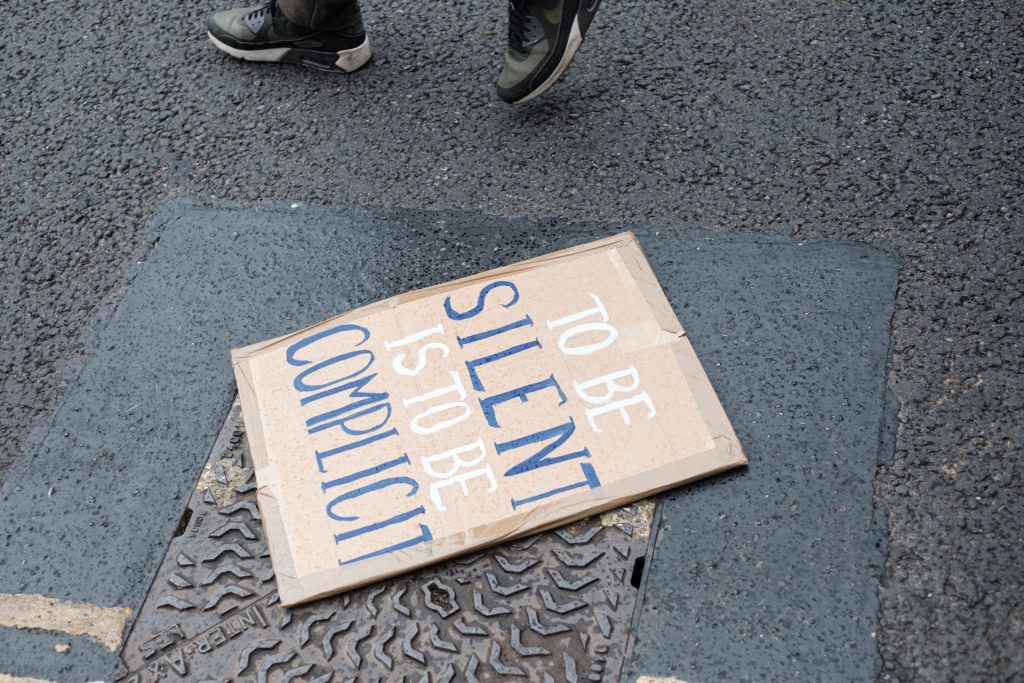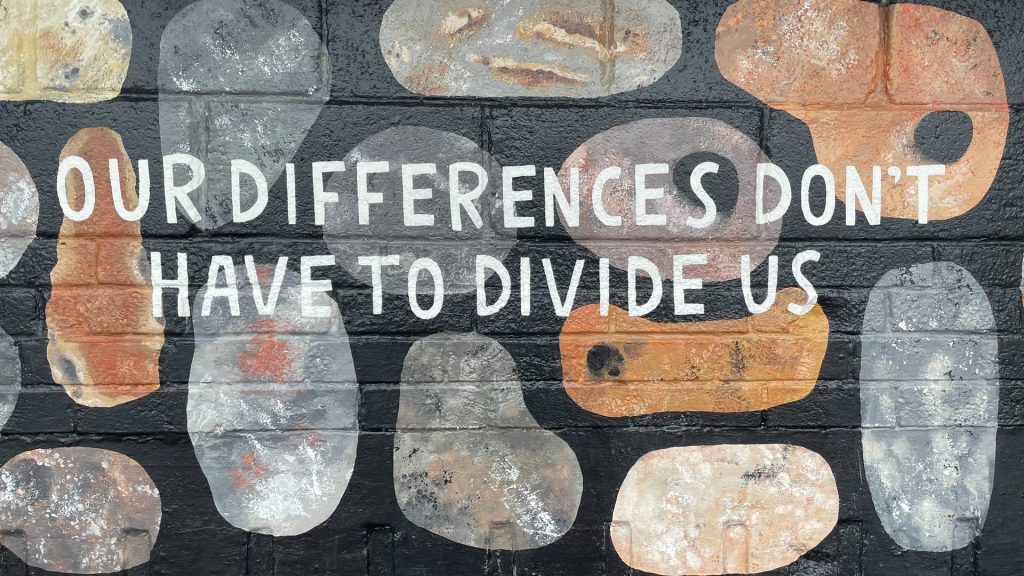As we continue thinking of empathy and its place within corporate social responsibility, we want to explore why empathy, rather than sympathy, is necessary for long-term success of programs and initiations. Of course, empathy and sympathy are both needed in the world. Currently, with so many things going on — #MeToo, #BlackLivesMatter, #StopAsianHate, the war in Ukraine, the Capitol riot, and a world overtaken with a pandemic (just to name a few!) — we need empathy both more than ever. Still, the way each of these movements or events evokes responses and support is not the same.
While people tend to use empathy and sympathy interchangeably, as we explored in our previous article, they do not mean the same thing.

It starts, as always, with defining the words.
Sympathy is the feeling of sorrow or pity for someone in their misfortune. Based on this, the person feeling the emotion is distinct, and doesn’t truly relate to the person impacted. This definition shows the clear divide between sympathy and empathy. It can, therefore, be associated more with rapport than empathy.
Empathy, by contrast, is the ability to understand and share the feelings of another person. These are the BIPOC who joined in the #BlackLivesMatter movement because it directly (or indirectly) affected them, or those whose experiences of harassment and assault allowed them to truly understand the struggle of the #MeToo movement. They could truly share empathy with each other.
“Allies”, however, fall under sympathy. They do not share or truly understand directly the feelings of those who experienced assault or racism as they were not victims themselves.
To-may-to, to-mah-to, right? Not really. This is an important distinction, especially in the pursuit of a better world for all.
When sympathy arises
Sympathy arises easily when people feel they should support others going through a traumatizing experience, of course, only when it’s right in front of them. It’s human nature to be this way. Did you know, there’s a reason certain items in the store are eye-level or higher, versus what is lower down? Out of sight … out of mind.
If you see it, you have the chance to become interested in it. This is similar to requests for aid the aid of sick and malnourished children in the world or abused animals who, shaking and whimpering, need humans to fund their care and rehabilitation.
Because I know about this problem, I’m a foster mom of rescue dogs.
I am sympathetic to the dogs’ plight, but I cannot empathize with them. Sympathy is the first step towards getting people involved in a cause. With enough notice on topics, sympathizers amplify the voice of the message. #BlackLivesMatter didn’t just start a decade ago. It’s been here for hundreds of years, in the wails of slaves as they were yanked off boats.
The terror women and men have felt at the hands of someone in greater power displaying unwarranted sexual behavior or expectations didn’t just start right before the pandemic. It’s been a consistent issue, dating back before Elizabeth Short, or The Black Dahlia—whose case still hasn’t been solved—and the driver behind women’s suffrage.
When sympathy arises, it’s because the voice of the victims grows louder through the allies or those who, when it is put in their faces, realize something horrible is happening. This, unfortunately, can be a fleeting measure. Sympathy, by definition, is sorrow or pity for someone’s situation, so if that situation is finished, so is the sympathy. This can even happen if a person appears to be happy and fortunate after a tragic event. “They’re okay now,” becomes the new sentiment.
But they aren’t.
Still, short-term care about events happens all the time, and why the news cycles around current events and the next big thing. This is why empathy, more so than sympathy, is important when it comes to corporate social responsibility. Sympathy is a temporary measure of support and care until things fade.

Empathy changes things
Empathy is spirit-deep. You don’t forget experiences, generally speaking, you’ve suffered through. Though on any given day, you may not think about it, all it takes is a moment, a trigger, a question, and it all comes flooding back. While some people easily ignore atrocities happening in other parts of the world — or even in their own neighborhoods — anyone who has experienced those or similar atrocities cannot. This is where empathy comes in. Those who truly empathize cannot forget or look away. It will always and forever be a part of their psyche.
Empathy brings people together in shared experiences, and also teaches others how the people who share the planet with us truly feel. It may seem like this can’t be a part of social responsibility, but it can.
Americans who remember the attacks of 9/11 may empathize with the sense of loss of security, shock, terror, and heartbreak felt by those in another country facing an attack. Too many around the world can empathize with tragedy, sadly. Even to begin a list of significant attacks or conflicts is to realize the list is impossibly long, likely incomplete, terribly sensitive, and hugely impactful on our sense of global empathy.
It’s a glaring issue where it takes such great acts to bring people together who would otherwise fight over so many smaller things in the world, but only empathy can truly bring people together.
Empathy at work
No matter the instance, companies have employees with different backgrounds, cultures, connections, and origins. They are all connected to their extended network of social groups as well. With empathy, companies—read “senior and top management”—can show support of their employees by understanding what is important to them, what causes resonate, and then support these causes like they support their employees. It’s understanding from a human perspective the deep-rooted needs of their employees, making it a part of their corporate culture.

Empathy makes companies better at communicating with their customers and employees, while understanding the world around them, and being more authentic to their target audiences.
Through empathetic listening, support, and growth within corporate culture, organizations can see greater growth, trust, and loyalty to them and their brand. Empathy improves employee experience as well as customer experience.
Because everyone — everyone — can relate to being human. A human who is struggling or has. A human who feels unappreciated, one who worries if they’ve done enough, or stresses about what to do next. We all can empathize with the human experience on earth even when we cannot empathize with a particular situation or event we are not directly part of.
Lead first with being human, always. And as we know better, we must continue to do better.






